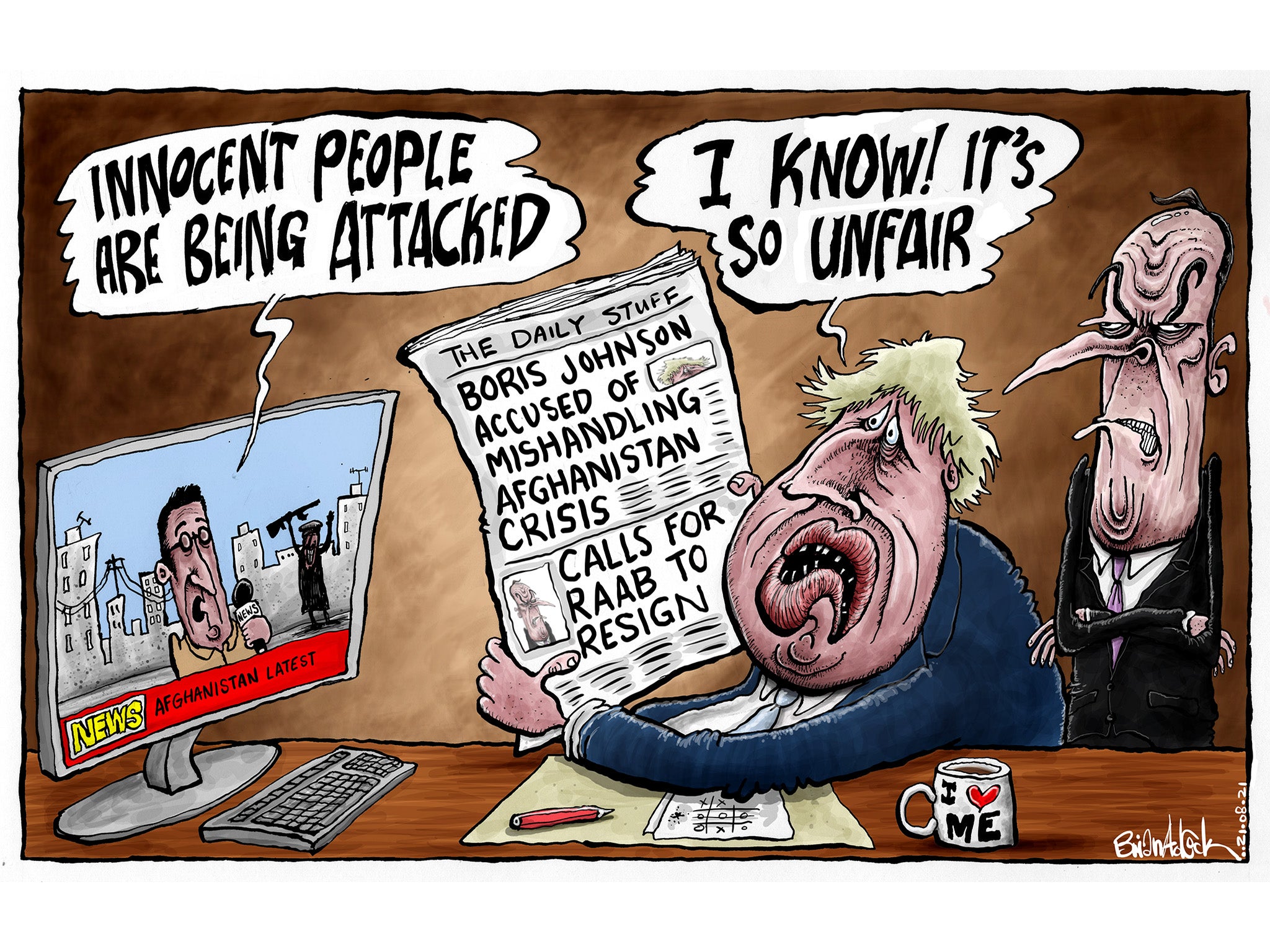As signs of resistance grow, the Taliban may find it difficult to take full control of Afghanistan
Editorial: Sporadic demonstrations in the cities, featuring the old Afghan flag, suggest that there are some who are prepared to defy the Taliban

Afghanistan, as the cliche goes, is the graveyard of empires. It is also, not coincidentally, an extremely difficult country to rule.
Even during the rule of the Taliban in the late 1990s, when the group was at its most powerful, it was only able to exert control over the country by the use of extreme force, by doing deals with tribal warlords, by deploying elements of al-Qaeda to terrorise its own people, and with the indulgent assistance of the Pakistani authorities.
Even then, there were portions of the country – especially in the north, with its patchwork of ethnic groups – where resistance ensured the Taliban’s power was fettered. Even then, in other words, the Taliban was not quite in absolute control of the country, and there are indications that it may now be able to exert much less control.
There are already signs of resistance among the Afghan population. The sporadic demonstrations in the cities, featuring the old Afghan flag, suggest that there are some who are prepared to defy the Taliban.
Some will be loyal elements of the old regime; others will simply be dissatisfied with the corrupt weak governments of the past, and hostile to the medievalist ideas of the Taliban.
Afghanistan is a young nation, and a generation (of young women and girls, especially) has grown up knowing some personal and political freedoms. They have seen other ways to run their country – and to make it safer and more prosperous than under the violent ideology of the Taliban.
Many will be unwilling to submit to the religious police; some will fight. They will be joined by those now being targeted by the Taliban, who have nothing to lose by joining the growing resistance. As ever, the Taliban’s cruel and brutal tactics will serve only to undermine and delegitimise its rule in the longer run.
The country is awash with arms from decades of conflict, and there will soon be no shortage of people willing to use them. The Taliban will find itself under attack – literally, rather than metaphorically – by women. Already, too, the old Northern Alliance, which so helped the international force to root out al-Qaeda in the 2001 invasion, has re-emerged to protect the peoples of the north of the country.
They, unlike the troops of the former Kabul government, are able and willing to fight the Taliban. Their putative leader has in effect declared war on the Taliban. They, in their “homelands” close to Uzbekistan and Tajikistan, will be hard for the Taliban to overcome.
Nor will the Taliban find the various terrorist groups so easy to control. Al-Qaeda is weaker than it was when Osama bin Laden used Afghanistan as a playpen for his warriors, but it is still capable of making trouble for the Taliban if it doesn’t like what the leadership in Kabul is up to.
On the other flank, both al-Qaeda and the Taliban will find Isis uncomfortable as a neighbour and tenant. The Taliban also finds itself in charge of a nation that has traditionally been the subject of interference from its ambitious neighbours and near-neighbours, global and regional, as well as from superpowers: Russia, China, Iran, India, and – above all – Pakistan.
Again, the Taliban, fierce as it is, will be unable to manage the conflicting demands of these countries, even as it tries to keep a lid on internal dissent and strike deals with local tribes and warlords.
Traditionally a neutralised “buffer” state between more powerful neighbours (including the British and Russian empires in the 19th century), Afghanistan is set to become a battlefield for bigger warring powers.
Such are the conditions for the fracturing of Afghanistan, and – in a worst case scenario – a descent into civil war, fought between factions and groups, both on their own behalf and as proxies for the rivalries of countries such as Pakistan, India and Iran, and for the west against Russia – even for Isis against al-Qaeda. Taliban forces might be left as little more than onlookers in some places.
Such a conflict, fought in unforgiving terrain and by a poor people, would be merciless on a scale unseen even in the barbaric recent history of the region.
President Biden, as part of his pretext for withdrawal, claimed that a civil war was taking place in Afghanistan. This was at best an exaggeration at the time. Now it is a very real possibility.






Join our commenting forum
Join thought-provoking conversations, follow other Independent readers and see their replies
1Comments